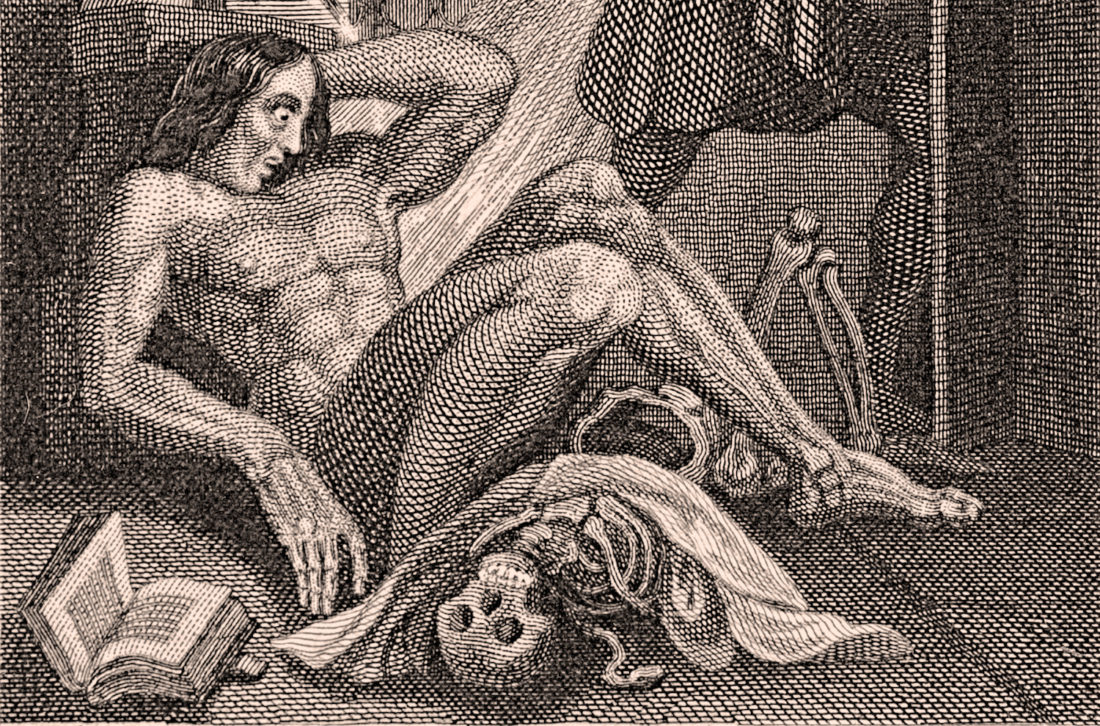In the past several years, I’ve seen many productions based on Mary Shelley’s Frankenstein. Chicago-based Manual Cinema, a unique puppet company, created an astonishing puppet/live action version of the story. There have been at least 2 full length ballet performances as well as a play that tells the story of Frankenstein and Shelley developing the story. Even earlier this year, the teen-romcom horror movie Lisa Frankenstein was released, which brought all the joy and gore of reanimating the dead with a high school romcom.
My biggest surprise from seeing all these adaptations was that our conception of Frankenstein is wrong. He’s not the hulking beast we see in many films, he’s a person who wants to love and be loved but scorns the world that has tossed him away. It’s a story about how nurture really does matter. My favorite Frankenstein meme sums it up best: “Knowledge is realising Frankenstein was not the monster, Wisdom is realising Frankenstein was the monster.”
As I was getting ready to see the Joffrey Ballet’s Frankenstein performance last fall, I realized that it was time to finally read the actual book. I generally shy away from pre-1900 literature, intimidated by the long paragraphs, flowery language, and a lack of dialogue, but instead of impenetrable prose, I found the book astonishing and brilliant. I’m now sorry I waited this long to read it. In my opinion, it should be included as part of more literature curriculums because of its discussion of science and ethics, the responsibility of creators to their creations and the world around them, and so much more.
So when I read about some recently published books taking inspiration from Frankenstein, I naturally wanted to see what authors today made with this 1818 book. Here are five books playing in Mary Shelley’s wonderful Gothic playground.
Our Hideous Progeny by C.E. McGill
This is the book that started the idea for this list. Frankenstein + dinosaurs? Yeah, that’s going to be a slam dunk for me. It’s 1850s England and paleontology is all the rage. It’s even the cause of rage as reputations and fortunes are made on scientific theories and disproving others people’s theories. Mary Brown has always had an interest in paleontology and geology but as an illegitimate orphan and a woman, she has few prospects. Neither does her husband Henry who was disowned by his wealthy father and has a tendency to rack up debts and ruin any possible career prospects for himself. Running out of money and fearing the workhouse, Mary stumbles upon her great-uncle Victor Frankenstein’s papers, and she comes up with a plan to marry their interests with Frankenstein’s work to find a place and reputation in society. But the cost might be higher than they had expected. The book brings the history of paleontology/geology, women’s place in Victorian society, and ethics in science together.
We Shall Be Monsters by Tara Sim
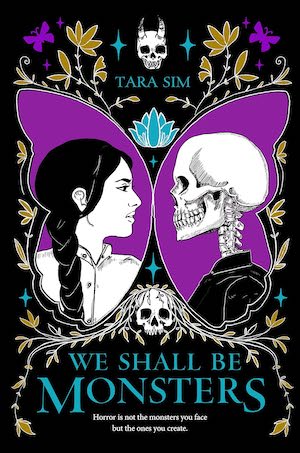
This one brings together Frankenstein and Indian mythology, which is really exciting for me. I love seeing how Sim takes the general story of re-animating the dead and twists it in interesting and delicious ways. Plus there’s a very good undead dog named Kutaa. All Kajal wanted to do was bring her sister Lasya back to life. But reviving a person can be dangerous since souls can be reincarnated, so while Kajal is successful in raising her sister, it’s not the sister she knew. Instead she’s revived her sister as a Bhuta, a supernatural creature who gains strength from murdering people.
Kajal finds herself imprisoned for her work and bringing this monster into the world. But that means Lasya may permanently stay a Bhuta if Kajal cannot find a way to help her. Kajal is offered help from a group who springs her from her jail, but they are not doing it out of the goodness of their hearts—they want her to use her reanimation skills for revolutionary purposes. Will she get to her sister in time or will the revolution and the authorities get in the way?
Angelika Frankenstein Makes Her Match by Sally Thorne
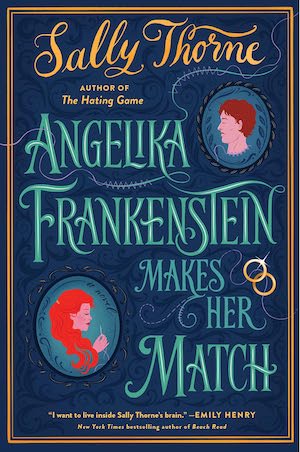
I chose this one because it’s kinda the opposite of the first two books in tone. This is a great example of scifantasy, with heavy emphasis on romance. When Angelika Frankenstein can’t find a suitable spouse, she decides to build her own. After all, she helped her brother (Victor) reanimate the dead. While she is successful at reanimation, he’s not quite the man of her dreams. Instead of falling in love with her, he wants to find out who he was before he died the first time, and she finds herself on a quest to help her creation find itself.
Chicano Frankenstein by Daniel A. Olivas
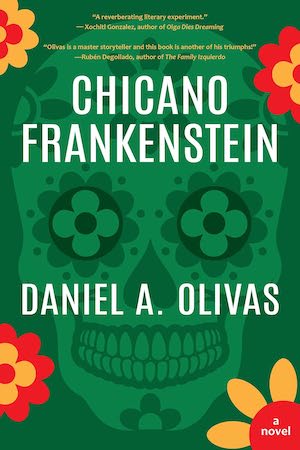
In Olivas’ book, reanimation is prevalent; people can be pieced together from different bodies. The only catch is that the reanimated cannot return to their own lives and do not retain their old memories. Because of this, the Pharmaceutical industry is doing gangbusters, but being widespread doesn’t mean that everyone accepts reanimated people, or “stitchers.” To make things worse, the president is stoking the flames of anti-reanimation prejudice. When a young reanimated man falls in love with a young woman, he ends up wanting to know more about his first life, breaking all known taboos. If you are looking for a sharp political satire, Chicano Frankenstein is the book for you.
Unnatural Creatures: A Novel of the Frankenstein Women by Kris Waldherr
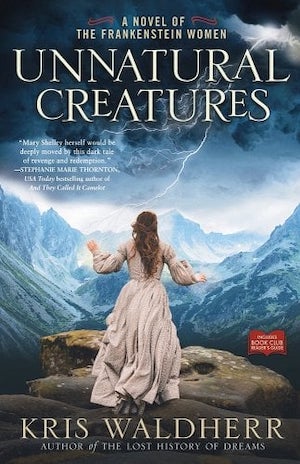
To round out the list, here’s a book that focuses on the three women in Shelley’s original story: Caroline Frankenstein, Victor’s mother; Elizabeth Lavenza, Victor’s bride; and Justine Moritz, the loyal servant of the Frankensteins. In the original, these women are kinda sidelined, focusing on Victor and his obsession so I love that this book brings the female characters front and center. Caroline wants nothing more than to protect her family from the outside world, inadvertently setting her son Victor down the path of seeking the secret of eternal life. Elizabeth is adopted by Caroline at the age of 4. Instead of the ‘angel of the house’ image we see in Shelley’s book, Elizabeth is not in love with Victor and only marries him out of loyalty to Caroline. And finally, Justine Moritz who is rescued by the Frankensteins and will do anything for the family, bringing her into a destructive path with the Creature. I love books giving you windows into other works through other points of view.

